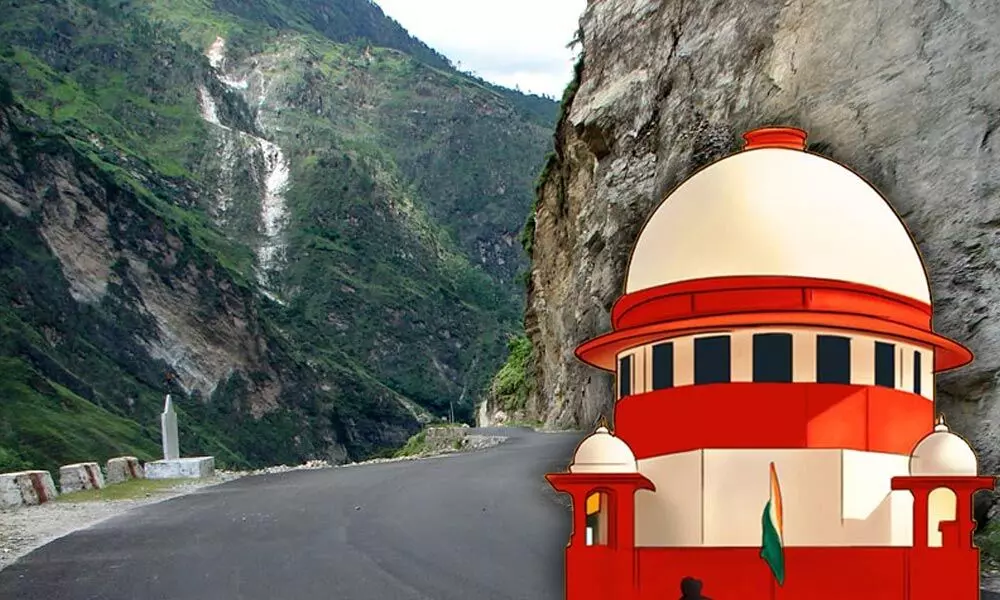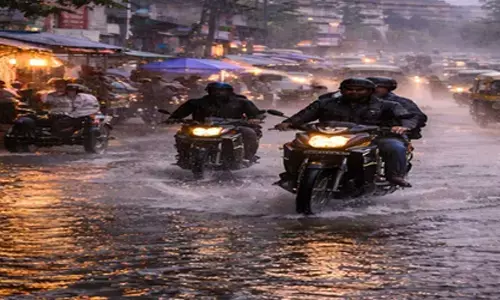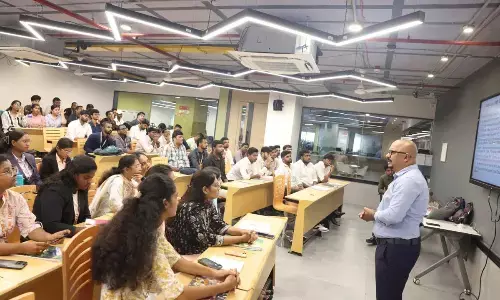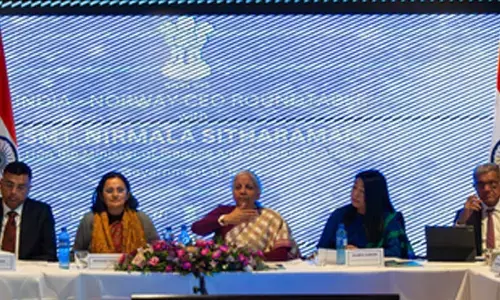'Fulfilling security concerns': Supreme Court allows road widening for 3 highways in Chardham project

'Fulfilling security concerns': Supreme Court allows road widening for 3 highways in Chardham project
The Supreme Court on Tuesday allowed the Defence Ministry to widen the three strategic highways, part of the Chardham project
New Delhi: The Supreme Court on Tuesday allowed the Defence Ministry to widen the three strategic highways, part of the Chardham project, saying that need for the development of national highways of a double lane-paved shoulder (DL-PS) standard is proportionate to the object of fulfilling the security concerns of the nation -- against the backdrop of recent security challenges at Indo-China border.
A bench of Justices D.Y. Chandrachud, Surya Kant, and Vikram Nath, in a 83-page verdict, said: "We find that the need for the development of national highways of a DL-PS standard is proportionate to the object of fulfilling the security concerns of the nation as assessed by the MoD (Defence Ministry). This is reinforced by the fact that the roads beyond the highways in the Project, beyond Gangotri, Mana and Pithoragarh, are being developed by the MoD as double-laned highways".
The bench emphasised that considerations governing the construction of highways that are strategic roads from a defence perspective, and may be used by the armed forces of the nation, cannot be the same as those for other roads in hilly and mountainous regions.
"We must therefore arrive at a delicate balance of environmental considerations such that they do not impede infrastructural development, specifically in areas of strategic importance crucial to the security of the nation," it added.
The Centre amended its 2018 notification in December 2020 to increase the road width limit from 5.5 metres to 10 metres. The top court said there are no mala fides in the application filed by the Ministry last year, seeking widening of the roads, up to 10 metres, for swift movement of armed forces troops, equipment, and machines to the India-China border.
The Centre had told the apex court that given the proximity of the roads to the India-China border, and the necessity of free movement for transport of trucks, machines, equipment and personnel of the Indian Army, double lane configuration must be allowed.
The top court judgment came on a plea by NGO Citizen for Green Doon and others citing environmental hazards associated with widening of the roads in the Himalayan region.
Justice Chandrachud, who authored the judgment on behalf of the bench, said the court, in its exercise of judicial review, cannot second-guess the infrastructural needs of the armed forces. The bench pointed out that submission of the appellants requires it to override the modalities decided upon by the Army and the Defence Ministry to safeguard the security of the nation's borders.
"The submission of the appellants requires the Court to interrogate the policy choice of the establishment which is entrusted by law with the defence of the nation. This is impermissible," the bench added.
The top court modified the order passed by a bench headed by Justice R.F. Nariman, on September 8, 2020, to the extent that the national highways from Rishikesh to Mana, Rishikesh to Gangotri, and Tanakpur to Pithoragarh be developed according to the double-lane carriageway width with paved shoulder standard as provided in the 2020 Ministry of Road Transport and Highways circular.
The appellants had also referred to a statement made by the Chief of the Army Staff in 2019 in a media interview regarding the adequacy of infrastructure for troop movement. The bench said: "The recent past has thrown up serious challenges to national security. The Armed Forces cannot be held down to a statement made during a media interaction in 2019 as if it were a decree writ in stone."
Attorney General K.K. Venugopal had told the court that national highways from Rishikesh to Mana, Rishikesh to Gangotri, and Tanakpur to Pithoragarh act as feeder roads to the Indo-China border and have strategic importance. He added that neither the 2012 circular nor the 2018 circular of the Ministry of Road Transport and Highways deal with the security needs of the country.
In August 2019, the top court had ordered the constitution of the High-Powered Committee to assess the impact of the Chardham project on the Himalayan region. In July 2020, the HPC delivered a report, where a majority of the members recommended the adoption of the DL-PS standard as road-width for the project. In September 2020, the top court accepted HPC's report and ordered that road width shall not exceed 5.5 metres as prescribed in the 2018 circular, which was the HPC's minority view. On Tuesday, the top court, in its verdict, agreed with the majority view of the HPC.









